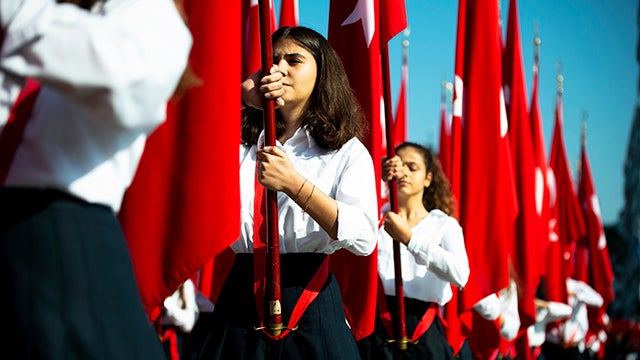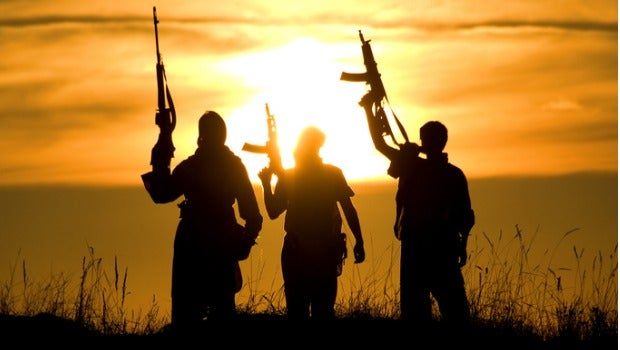Above, watch Joseph Votel, commander, United States Central Command, discuss US military strategy in the fight against ISIL and other threats.
With headlines of attacks carried out or inspired by ISIL continuing around the world, the war against the Islamic State often appears bleak. While it is far from over, there has been some progress in the security situation on the ground. Joseph Votel, commander of the United States Central Command, discussed the current state of affairs and strategies the US uses to combat the Islamic State at the 2016 Aspen Security Forum.
Working with partners in the region, including Turkey and Iraq, is crucial.
Working with Turkey is vital, as the country is not only a location to position assets for launching into Syria or Iraq; Turkey also helps the United States derive information on the Islamic State, such as where ISIL is moving their fighters.
The recent coup attempt in Turkey was worrying, Votel said, as they have been a crucial partner of the United States in the region.
As a result of the coup attempt, there have been limitations on some of the activities that the United States carries out in the region, and Votel is concerned about the impact on the relationships between the United States and Turkish political and military leaders.
“We have ways to mitigate and manage that, but we are concerned … They are a sovereign country,” he said. “They have to work through their own issues. We have to be as supportive of that as we can be, but we also have to get things done.”
The United States also works with Iraqi officials, including their military and defense leadership, to attack ISIL from multiple angles, in what Votel described as the overarching strategy of the United States: presenting ISIL with “multiple dilemmas.”
“It gives us the ability to overwhelm them. Part of our strategy has been simultaneity – and I think that strategy is working for us,” Votel said.
Votel said that he is seeing more confidence in Iraqi military leadership in this approach as well.
“It’s far from perfect, and they don’t always approach things the way we would,” he said, “But there is a growing level of confidence that the military operations they are doing are having the effects we desire against ISIL.”
The United States has to combat ISIL propaganda in a variety of ways, domestically and abroad.
ISIL’s use of the internet and social media to spread their message and recruit members is well-documented. The United States and the global community has been active in engaging counterterrorism efforts online. This type of work has been effective in controlling the foreign fighters who make the journey to fight for ISIL in Iraq or Syria, said Votel.
While this sort of information is helpful when stopping ISIL from reaching potential members in other countries, preventing radicalism inside Syria and other countries in region is difficult. Moderator Richard Engel, chief correspondent for NBC News, pointed toward the example of Aleppo, where a documented 350,000 people are under seige and at risk of mass starvation. Engel asked: “If you see a city surrounded, with people starving to death — isn’t that the best message for violent extremism? How do you combat that?”
Responding to the situation on the ground is his principle objective, said Votel. There is a human disaster taking place. In order to prevent radicalism of people who are experiencing or seeing this humanitarian disaster, however, his strategy is simple: making sure that people on the ground are aware of who the real enemy is.
“Expose the Islamic State’s ideology for what it is,” he said. “Call them out for the things that they are doing.”
A victory against ISIL will not be simple, but it is not impossible.
Militarily, the fight against ISIL is extraordinarily complex, taking place on the ground in multiple countries and virtually as the United States counters propaganda on digital platforms. There is not going to be a time that we will be able to hold a victory parade, said Votel.
According to Votel, victory will be determined through a variety of factors:
- Holding the coalition together and preventing ISIL from perpetrating attacks around the world and across the territories they hold
- Preserving the influence and objectives of the United States in areas around the Middle East so that long-term stability can be addressed.
- Controlling terrain and disrupting ISIL’s toxic ideology.
“It’s like a wrestling match,” said Votel. “We wrestle and score a point, and then we move on to the next point. If you do that enough, you end up prevailing.”

